News
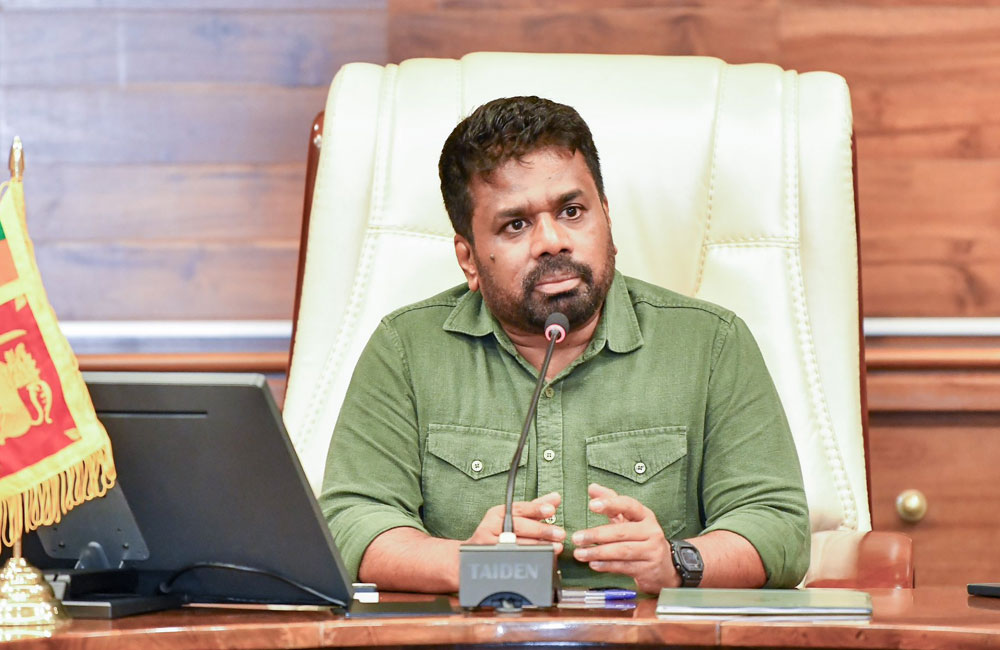
"Cyclone Ditwah" proves, AKD Government no match to its "challenge"
It's about two weeks, since Cyclone "Ditwah" almost flattened Sri Lanka, from end to end. President Anura Kumara Disanayake who complained lack of proper data for planning reconstruction work in post cyclone "Ditwah", was going from district to district with cameras meeting the bureaucracy, capturing him discussing damages. He went on record saying, there were people who said Sri Lanka would take years to get back on its feet, but his government has already laid the ground for normalcy.
Day before (December 09), the Education Ministry announced all Montessories and Pre-schools would begin from Tuesday 16 December. Obviously a crude attempt to tell the people, the government is far more efficient than what the Opposition is saying. Meeting with Principals of "national" schools and with provincial educational administrators, Secretary Ministry of Education announced on 09 December, out of over 10,096 schools, all schools in Western (1,344), South (1,101), Sabaragamuwa (1,101), East (1,124) and North-Central (1,243) provinces will begin on Tuesday 16 December. That would be roughly 50 percent of the schools. He had also said, 26 schools in Uva, 06 in North-West and 115 in Central province would remain closed. What that means, is not quite clear, as these provinces are not listed as provinces that would open schools from 16 December.

What's funny here is, these schools that is to re-open on 16 December, would close for the term on 23 December. Just 06 days of tidying and cleaning-up the school, not teaching. Thereafter, all 10,000 plus schools will begin the first term on 01 January 2026. What purpose would it serve to have half the schools open for just 06 days and not for teaching?
Meanwhile warnings on turbulent weather keep coming. To date (11 December) highest number of affected people were reported on 30 November evening, 03rd day since Cyclone "Ditwah" moved into Sri Lanka on 27 November. On 30 November, the highest number of affected families was 5,524 from Badulla district, while Colombo was next with 5,303 families. Highest number of safety centres were also in Badulla with 180 and Kandy district next with 176 safety centres.
It was not only deaths, that shocked the whole society. It was "affected" numbers with debris all round. Families whose houses were simply flattened to the ground. Families that were thrown out from their houses. Those who lost their entire life's savings and investments. Those who lost their means of livelihood. And the elderly and the children who are cyclone-shocked and need professional counselling. Whose numbers are yet not known. It's that "human tragedy" this society would be compelled to shoulder.
Again on 01 December, there were a total of 57,790 affected families, an increase of over 2,000 affected families from previous day, though with a reduced number of safety centres totalling 1,368. Affected number of families in Puttlam had increased by over a 1,000 to 4,104, Badulla had increased to 6,685 with over a 100 more and Kegalle increased from 3,225 on 30 November to 4,647 on 01 December.
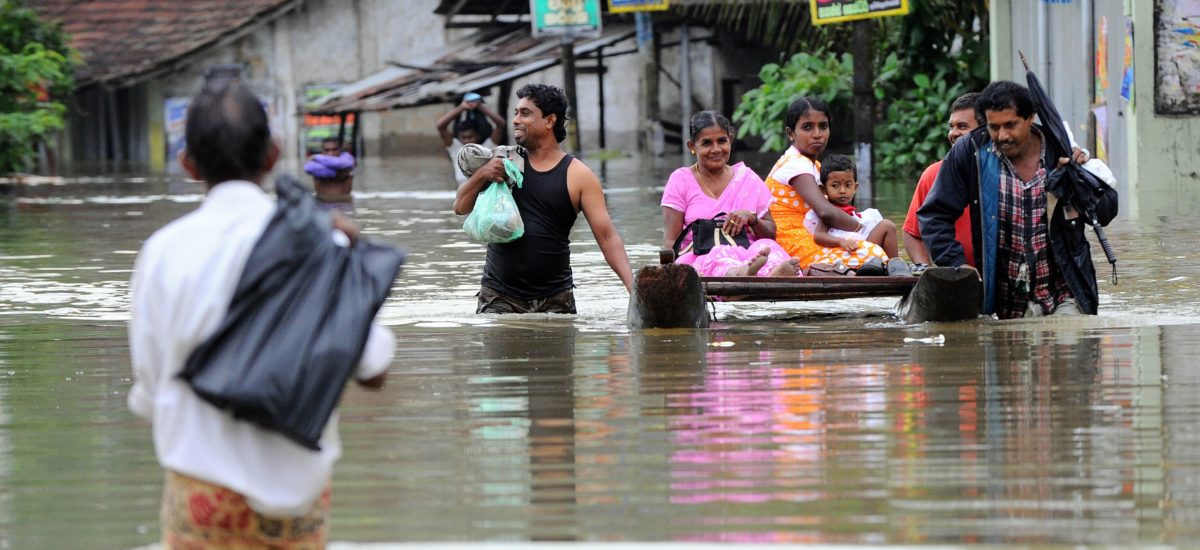
From December 06 to 09th, fluctuation of numbers show a significant decrease with Cyclone Ditwah moving out of the country. The physical and human tragedy had not come to an end though. Every day, there were reports of landslides; small, large and massive. To this continuing devastation, we were told our North-East monsoon was setting in and would have high rainfall on already devastated areas. As said, there were increased rain in North-East of the Central hills, with reports of more landslides. DMC numbers on 10 December, thus show an increase of 6,441 affected families and 21,705 individuals over numbers of the previous day.
Once again there were "Red notices" issued on "possible landslides" in Matale, Kandy, Kurunegala and Kegalle, with a total of over 45 threatened areas earmarked as these districts have had over 150 mm of uninterrupted rain during the past 24 hours. There were also Level-2 "Amber" warnings for nearly 40 other areas in Kuruegala, Kegalle and in Badulla districts.
What then was the urgency to reopen half the number of schools for just 05 days? The AKD presidency and the JVP/NPP government are being increasingly condemned for amateurish work and lack of "common sense" planning. AKD presenting the 2026 Budget wanted to prove they are more efficient than what any previous government was by saying, they have disproved all who claimed it would take a decade to get back to pre-economic bankruptcy, by achieving near normalcy in just 01 year. Here too, his claim that the government has already laid the ground for normalcy though people said it would take years to get back on its feet, is to be proved by reopening schools. It is a fact, people do feel "normal" when schools are open and see children going to school. It is that social psyche he is attempting to create, sadly in a society that still struggles to get out of the debris they are caught in.
It would have therefore been more decent, acceptable and promising had he said, he would have both the Colombo-Badulla rail track and the Colombo-Kandy A-1 road done for normal traffic before year end, a six-month living allowance of Rs.50,000 per mensem for those who are displaced and have lost their livelihood and also free counselling for the needy. Main road and rail road repairs he knows is not possible for many months to come. Though incoming foreign assistance is heavily hyped, the government seems scared to talk of a living allowance of Rs. 50,000 per mensem with massive infrastructure repairs at hand and yet with no estimates done. Cyclone Ditwah I believe, left Sri Lanka with a screaming and weeping human tragedy never heard of before on this land and with proof, the government is no match to the challenge it left.
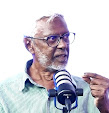 Kusal Perera
Kusal Perera
(Source - https://kusalperera.blogspot.com/)
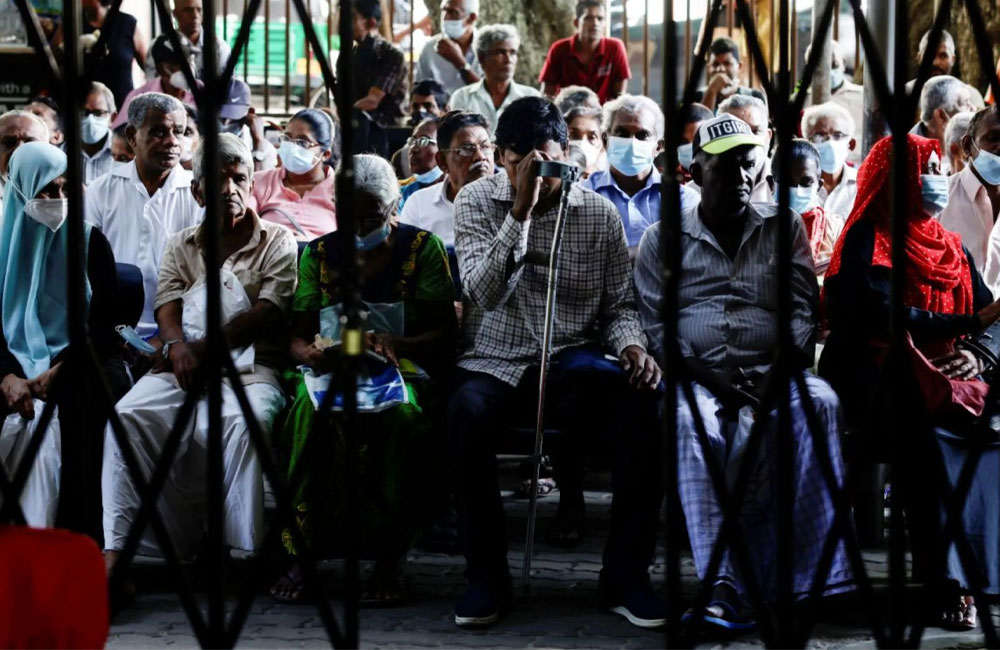
“Vehicle Plan for WB project Reflects Structural Gaps in Public Health”
Sri Lanka’s decision to divert US$150 million in World Bank IDA funds into a massive vehicle procurement programme has exposed a truth long whispered inside the health sector: frontline public health services have been running on a fragile, hollowed-out system, where workers are expected to deliver community care without the most basic tools to reach the communities they serve.
The move made under the banner of the Primary Health Care System Improvement Project (2024–2028) has ignited questions about whether the government is using development financing to plug years of chronic neglect rather than to deliver the reforms the World Bank originally intended.
At its core, the IDA project was designed to tackle non-communicable diseases, strengthen elderly care and improve climate-resilient health services.
But the Cabinet’s approval of more than 4,000 vehicles, from scooters and motorbikes to clinical-waste Lorries, double cabs, freezer trucks and even an ambulance boat, signals a far more uncomfortable reality:
Sri Lanka’s community health network is so under-resourced that basic mobility—not medical expertise, not diagnostic capacity, not technology has become the number one barrier to delivering care.
Field staff describe a system where midwives walk miles to reach pregnant mothers, public health inspectors borrow motorcycles, and nurses rely on irregular public transport to respond to outbreaks or deliver home-based care.
These are not isolated incidents they are symptoms of a system that has been chronically weakened while political administrations repeatedly underfunded operational essentials.
Government officials insist the procurement is fully justified, arguing that without transport, the World Bank’s objectives cannot be met. In their view, the fleet represents long-overdue investment: the physical foundation upon which community-based care must stand.
Their argument, however, raises a far more serious question why did the health system collapse to a point where imported vehicles funded by foreign loans are the only way to keep frontline services functioning?
Critics point out that using IDA credit—a concessional financing tool meant to strengthen public health outcomes for what resembles a large-scale import programme risks undermining the project’s integrity.
They warn that the sudden shift from health-system reform to vehicle acquisition may not fully align with the World Bank’s approval criteria, and could trigger compliance scrutiny if objectives appear diluted or redirected.
There are also concerns about procurement transparency, given Sri Lanka’s history of inflated tenders, politically favoured suppliers, and weak oversight in large purchases.
The size of the fleet far exceeding standard replacement cycles has raised eyebrows among health-sector analysts who fear that expensive equipment may end up under-utilised or poorly maintained once the project ends.
Still, the controversy reveals a brutal truth: Sri Lanka’s health system is no longer failing at the marginsit is failing at the fundamentals.
Vehicles may temporarily help frontline workers reach patients, but they cannot by themselves fix the deeper deficiencies in diagnostics, staffing, community health planning and long-term prevention strategies.
Unless this procurement is paired with real reform, serious monitoring, and a transparent results framework, Sri Lanka risks turning a rare opportunity for structural health improvement into yet another band-aid solution bought on borrowed money.
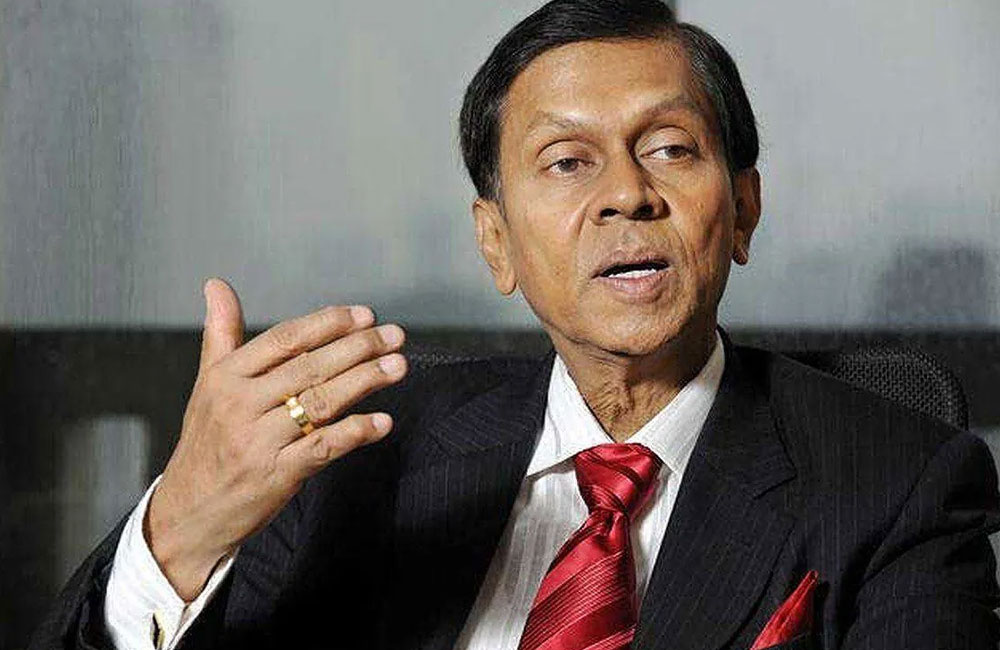
Cabraal discharged on condition he compensates Central Bank in three months
Former Central Bank of Sri Lanka (CBSL) Governor Ajith Nivard Cabraal was given a conditional discharge by the Colombo High Court following representations by his legal team to withdraw the indictment against him because there is no evidence to prove he had intentionally caused a financial loss to the Government by investing in Greek Treasury Bonds.
Earlier this week, the Colombo High Court gave permission to discharge Cabraal on condition he compensates the Sri Lanka Central Bank for losses it incurred by investing in the bonds.
The Court gave Cabraal three months to transfer a little over Rs. 1.8 billion to the CBSL’s account. He risks being indicted further if he violates the Court order.
Cabraal, who was the Governor of the Central Bank between 1 July 2006 to 8 January 2015, is accused of causing a loss of over Rs. 1.8 billion to the Sri Lanka Government by investing in the Bonds.
In representations made to the Commission to Investigate Allegations of Bribery and Corruption (CIABOC) Cabraal’s lawyer said although his client’s participation in the decision to invest in Greek bonds cannot be denied, he did not have the requisite intent or knowledge to cause a wrongful or unlawful loss to the Government.
The representations emphasise the collective nature of the decision making that took place in the Central Bank with Cabraal’s lawyer stating, “his client acted based on the recommendations of his Deputy Governors and senior officers and there is no evidence whatsoever he acted arbitrarily.”
While highlighting that the CBSL’s documented records which point to overall yield profitability is a testimony to the bona fides of his client and the Monetary Board, the representations invoke the statutory protection for his client under the Monetary Law Act for acts done in good faith.
Meanwhile, in a statement issued on 10 December the CIABOC said it had agreed to withdraw the indictment against Cabraal, the first accused in the case, on condition he pays compensation of Rs. 1,843,267,595.65 to the Central Bank. The legal provision for this is s. 67 (3) of the Anti-Corruption Act 2023.
Cabraal and four other senior Central Bank officers were indicted in the High Court for conspiracy to commit the offence of corruption under Sri Lanka’s bribery legislation. Cabraal himself was individually indicted for the offence for his alleged role in investing in Greek Government bonds between 16.03. 2011 and 29,11,2012.
The CIABOC statement went on to say that steps will be taken to indict Cabraal further under s. 67 (5) of the Act if he fails to pay the compensation.
The indictment was withdrawn under s. 67 (1) of the Act.
The four other accused in the case were acquitted under the provisions of the Penal Code.
By Sarasi Wijeratne
(Source - ft.lk)

Cyclone Ditwah Relief: Germany Sends €500,000 in Emergency Assistance
Germany has announced emergency assistance worth approximately €500,000 to aid Sri Lanka in the aftermath of Cyclone Ditwah. The support is being provided under the European Union Civil Protection Mechanism (EU UCPM) as part of the EU’s coordinated emergency response.
The initial needs were identified through the EU Civil Protection and Humanitarian Aid Operations (ECHO). Funded by the German Federal Foreign Office and delivered via the Federal Agency for Technical Relief (THW), the aid package includes emergency shelter materials, water, sanitation and hygiene (WASH) supplies, personal protective equipment (PPE), and technical equipment to assist ongoing relief operations across the country.
A THW delegation is currently in Sri Lanka, working closely with national authorities to ensure the aid complements broader relief efforts.
Germany reiterated its solidarity with Sri Lanka, expressing its commitment to supporting the nation’s rebuilding and recovery, and extended condolences for the tragic loss of life and damage caused by the cyclone.

Awards Ceremony of Agenda 14 Short Film Festival Held at Goethe-Institut
The awards ceremony of the Agenda 14 Short Film Festival was held on December 7 at the Goethe-Institut (German Cultural Centre) in Colombo. The festival is Sri Lanka's premier event dedicated to recognizing and celebrating the short film works of young filmmakers.
Under 12 award categories, 20 individuals including young filmmakers and actors were honoured with awards and certificates at the ceremony.
Marking its uninterrupted 15th edition this year, the festival screened 50 selected short films (chosen from submissions received from 16 districts across Sri Lanka) from December 4th to 7th at the Goethe-Institut, and from 5th to 7th at the Alliance Française de Colombo. All screening sessions recorded exceptionally high audience turnout.
Film and teledrama director and actor Jagath Manuwarna served as the Jury President this year. The other jury members were film scholar and filmmaker Athula Samarakoon, film editor Saman Alvitigala, translator and film critic Muralitharan Mauran, and filmmaker and writer Ajantha Wijewardena.
The festival's main partner is the Goethe-Institut, while the venue partner is Alliance Française de Colombo. The festival is also supported by the Embassy of France, The Centre for Policy Alternatives (CPA), and The International Movement Against All Forms of Discrimination and Racism (IMADR).
The awards were presented by distinguished guests including Cécile Hoorelbeke (Director, Alliance Française de Colombo), Olivia Bellemere (Cultural Counsellor at the Embassy of France in Sri Lanka), Jan Ramesh de Saram (Cultural Programming - Goethe Institut), Stefan Winkler (Director, Goethe-Institut Sri Lanka), Dr. Nimalka Fernando (Chairperson, IMADR Asia Committee), and Markus Ruff (Head of Archival Projects at Arsenal – Institute for Film and Video Art).
Anomaa Rajakaruna, the founder and director of the Agenda 14 Short Film Festival, is a pioneering filmmaker who has dedicated many years to promoting short film as a popular and powerful medium among contemporary young creators in Sri Lanka. She is also a film curator and an internationally recognised trainer in filmmaking.
The award-winning films and their creators are as follows:
Best Short Film Nominations:
- 'High Dose' by Vishvajith Ekanayaka
- 'Stuckholm' by Nayani Narayana
- 'His First Period' by Avishka Arangalla
- 'Is Snow White?' by Sureni Ranawaka
- 'Neelum Oor Kadaisi Iravu' by Jacob Luke Jeroshan
- Award - 'Is Snow White?' by Sureni Ranawaka
- Jury Award - 'Neelum Oor Kadaisi Iravu' by Jacob Luke Jeroshan
Most Promising Filmmaker
- Kenula Pathirathna for 'Vipallasa'
Most Gender Sensitive Film Nominations:
- 'Withered Flower' by Nuzha M.W.F.
- 'Is Snow White?' by Sureni Ranawaka
- 'Unwritten Verses' by Fathima Shanaz
- Award - 'Unwritten Verses' by Fathima Shanaz
- Sunila Abeysekera Memorial Human Rights Prize Nominations:
- 'His First Period' by Avishka Arangalla
- 'Attai Kadiththathu Poga Meedhamulla Kaalgal'' by Thiyagaraja Yuwarajan
- 'Katha Karana Biththiya' by Sanduni Wanasinghe
- Award - 'Attai Kadiththathu Poga Meedhamulla Kaalgal'' by Thiyagaraja Yuwarajan
Micro Short Film Nominations:
- 'Neth's Folly' by Ginuki Jayaweera
- 'Mulveli 'by Vijarathnam Maalan
- Award - 'Neth's Folly' by Ginuki Jayaweera
Green Award Nominations:
- 'Trace' by Dinesh Balasri
- 'Right Choice' by Dimantha Ranaweera
- Award - 'Trace' by Dinesh Balasri
Best Experimental Film Nominations:
- 'Tears of Ceylon' by Viranga Pathirage
- 'His First Period' by Avishka Arangalla
- 'My Dear Fish Tank' by Poojana Dandeniya
- Award -'His First Period' by Avishka Arangalla
Outstanding Performances Awards:
- Sureshkumar Mithujan for 'Neelum Oor Kadaisi Iravu'
- Nuzha M.W.F. for 'Withered Flower'
- Special mention: Ramesh Pavithran for 'Trace'
Best Animation Nomination:
- 'Stuckholm' by Nayani Narayana
- 'Neth's Folly' by Ginuki Jayaweera
- Award: 'Stuckholm' by Nayani Narayana
Best Editor
Thamesh Malinda for 'Cold Desire'
Best Cinematographer
Viranga Pathirage for 'Tears of Ceylon'
Audience Choice Award
'Between Us' by Vinuri Vibudhana Kiriwendala

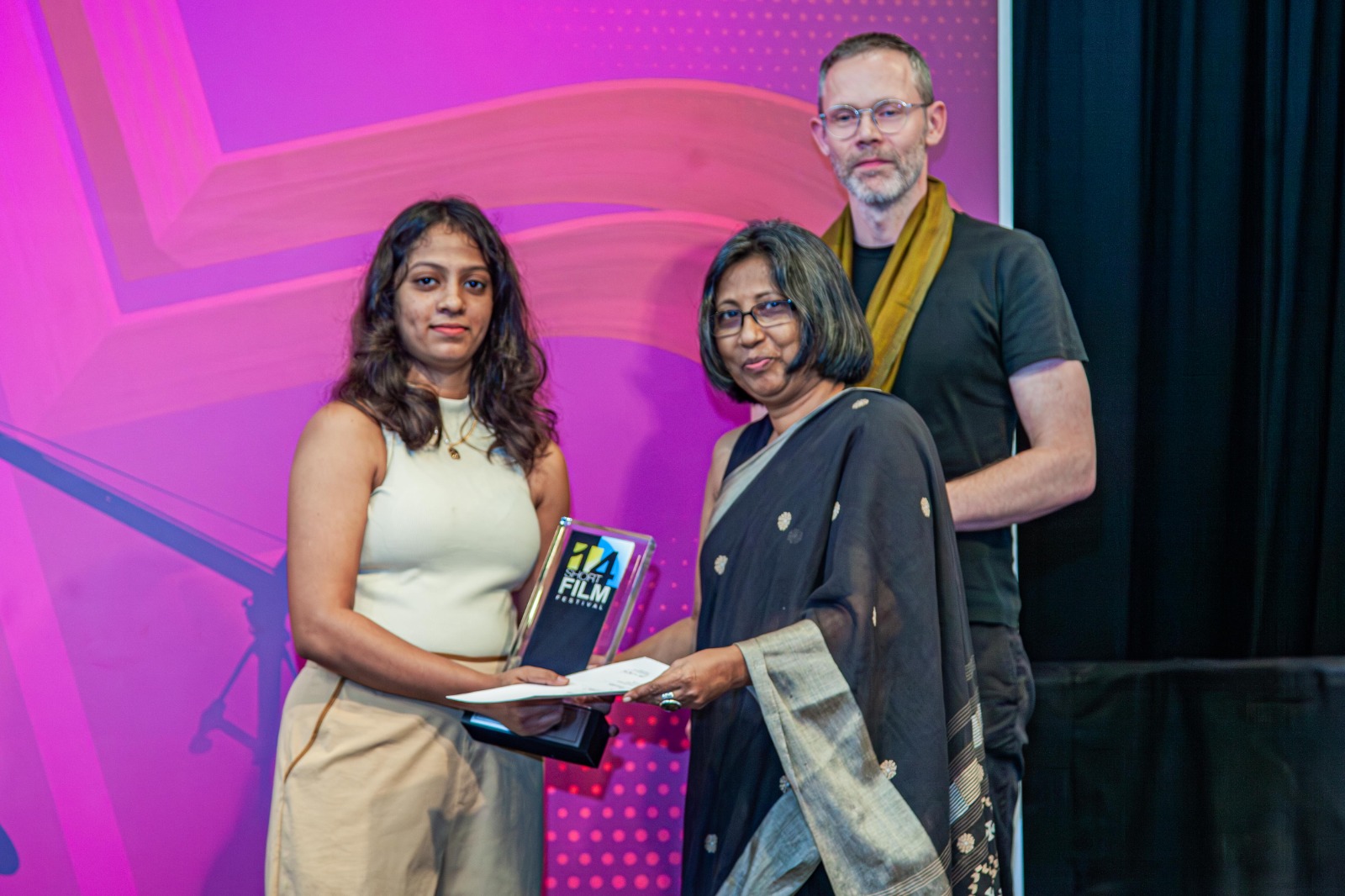
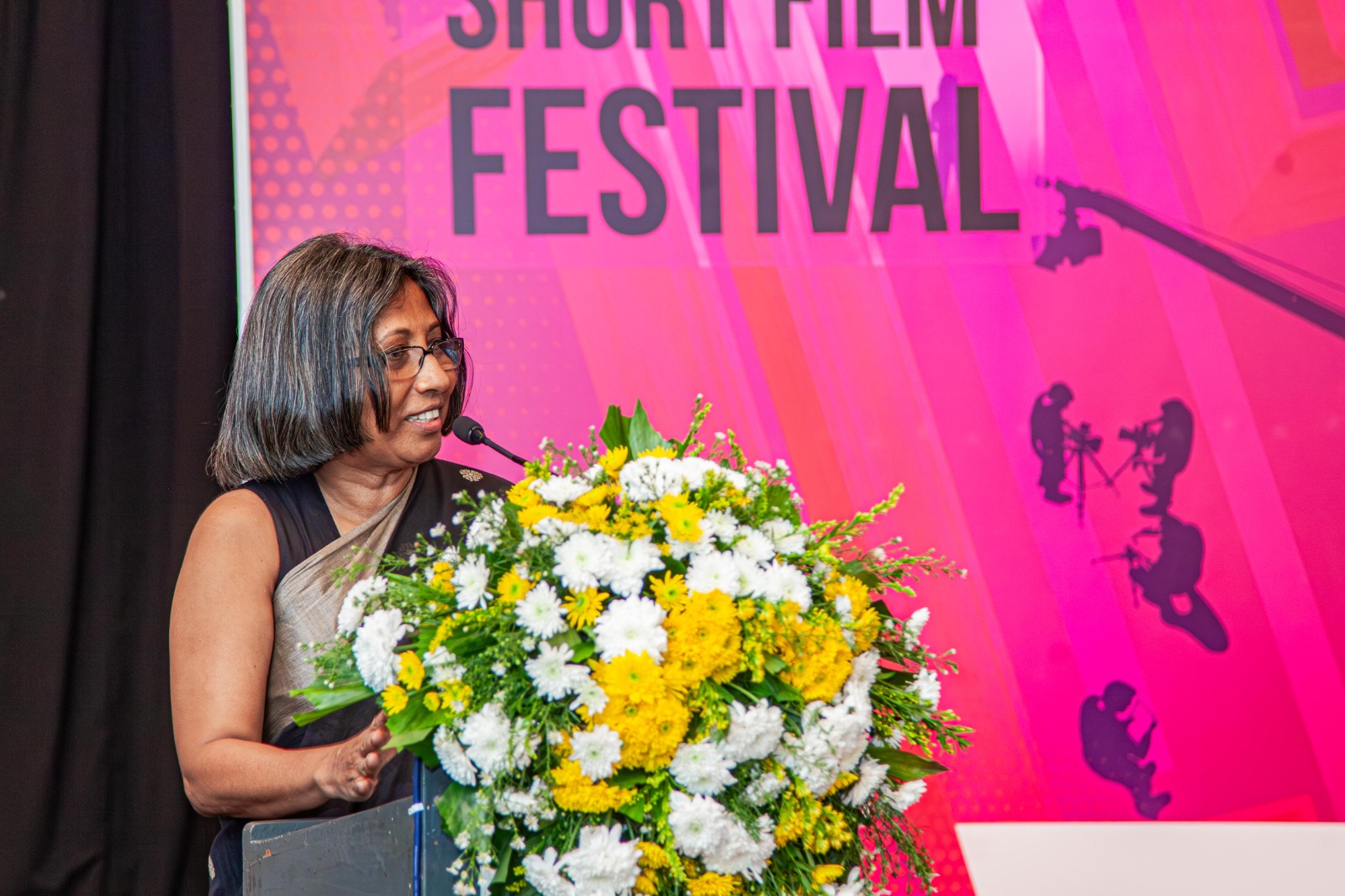
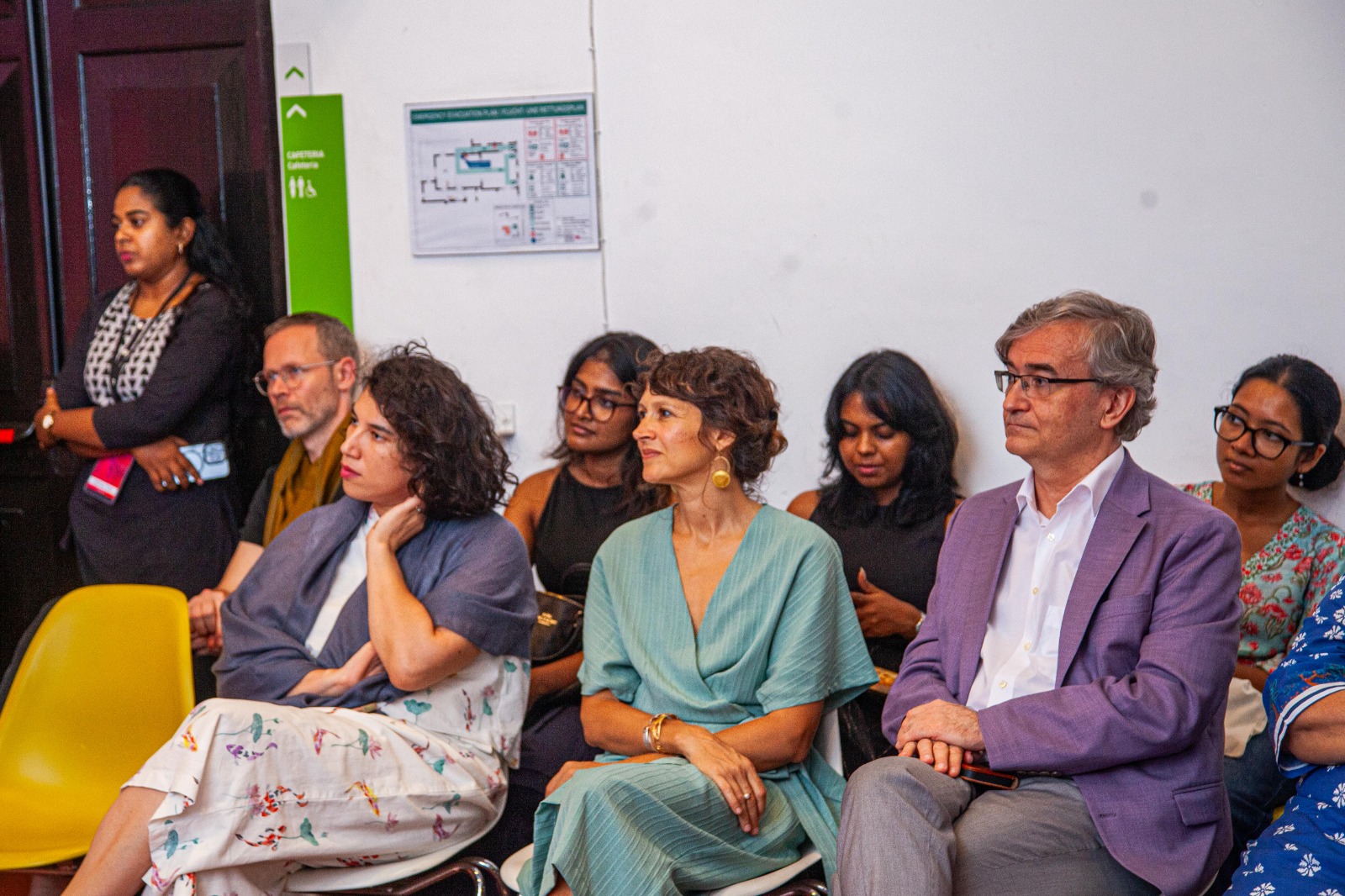
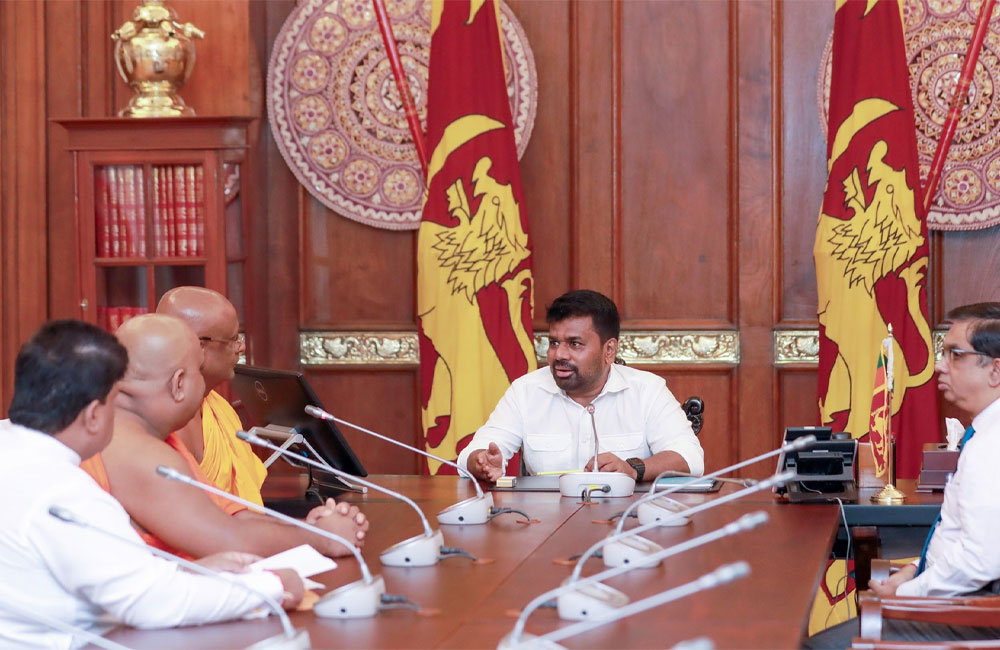
Dalada Maligawa Donates to ‘Rebuilding Sri Lanka’ Fund
The Deputy Registrars of the Malwathu and Asgiriya Chapters have praised the government, led by the President, for its efforts to rebuild communities and restore normalcy in the aftermath of the recent disaster, the President’s Media Division (PMD) announced.
Their remarks were conveyed by Rajakiya Panditha Darshanapath Ven. Mahawela Rathanapala Thero, Deputy Registrar of the Malwathu Maha Viharaya Chapter of the Siyamopali Maha Nikaya; Ven. Dr. Muruddeniye Dhammarathana Thero, Deputy Registrar of the Asgiriya Chapter of the Siyamopali Maha Nikaya and Chief Incumbent of the historic Badulu Muthiyangana Raja Maha Viharaya; and Nilanga Dela, the Diyawadana Nilame of the Sri Dalada Maligawa.
The remarks were made during a meeting with President Anura Kumara Dissanayake at the Presidential Secretariat this morning (11), the PMD said.
Discussions centred on ongoing relief and resettlement measures for communities affected in the Kandy district.
Meanwhile, the Diyawadana Nilame outlined the role the Temple of the Sacred Tooth Relic could play in supporting resettlement initiatives.
As part of this support, the historic Sri Dalada Maligawa has made a financial donation to the ‘Rebuilding Sri Lanka’ Fund, the statement added.
Secretary to the President, Dr. Nandika Sanath Kumanayake, also attended the meeting.
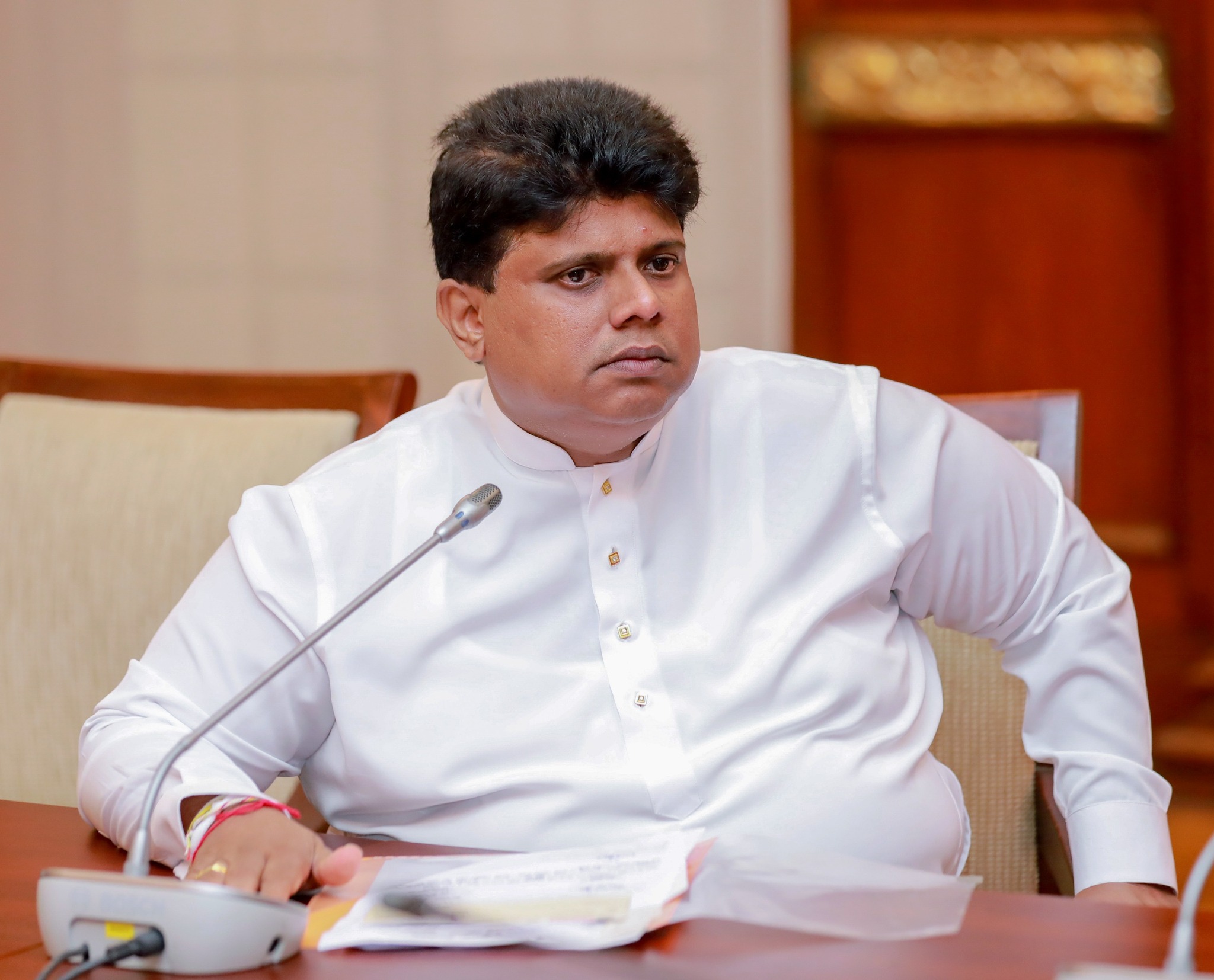
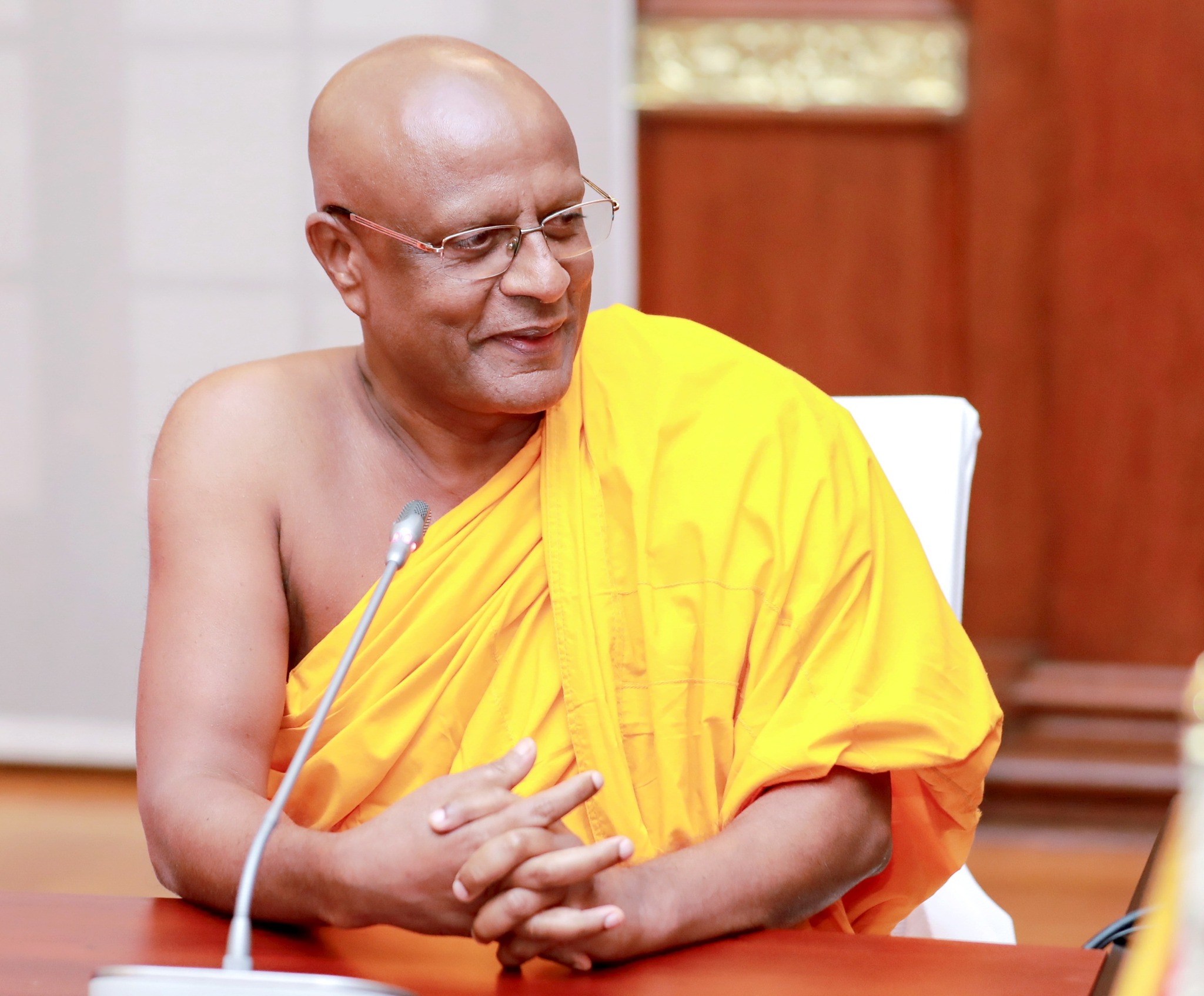
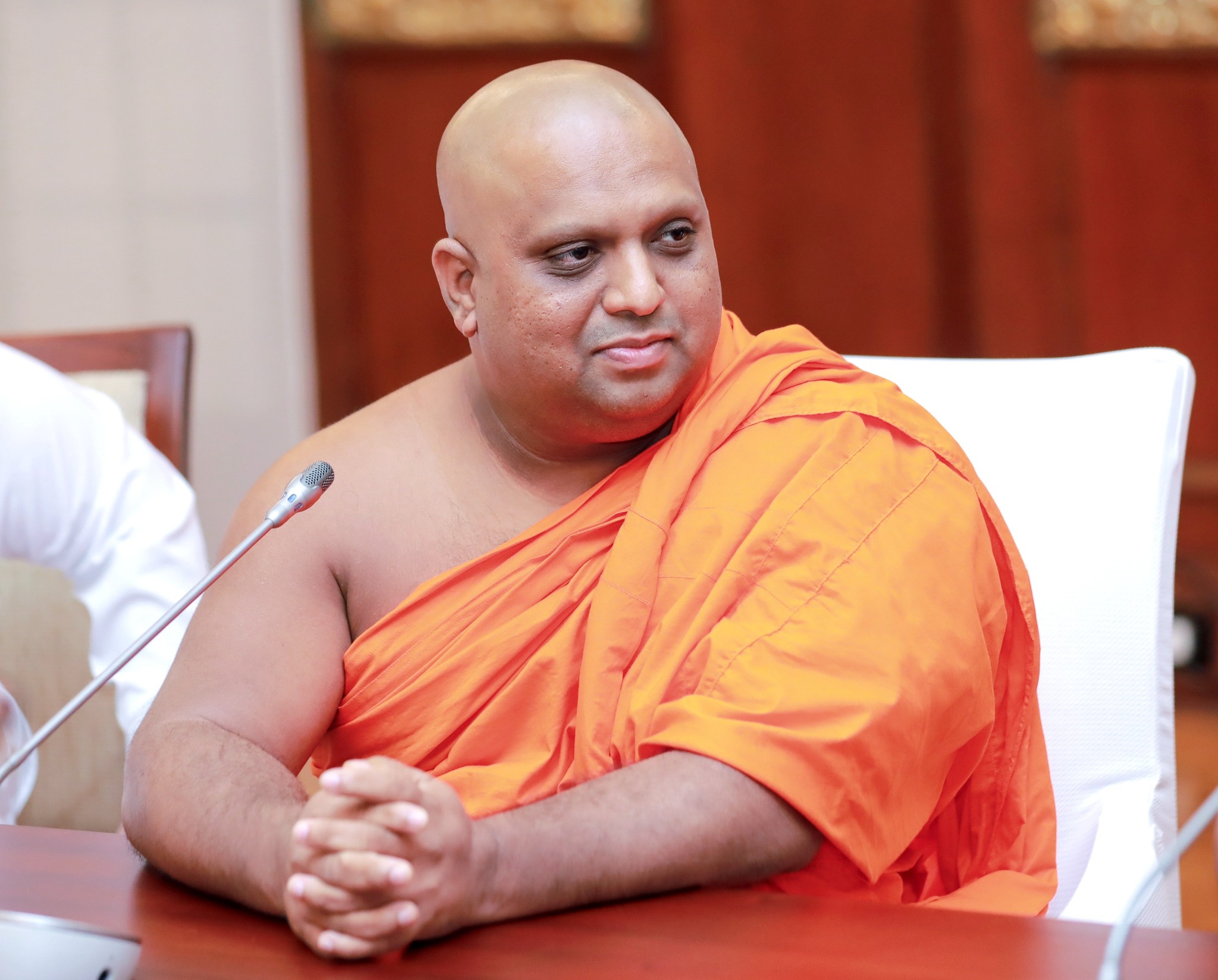
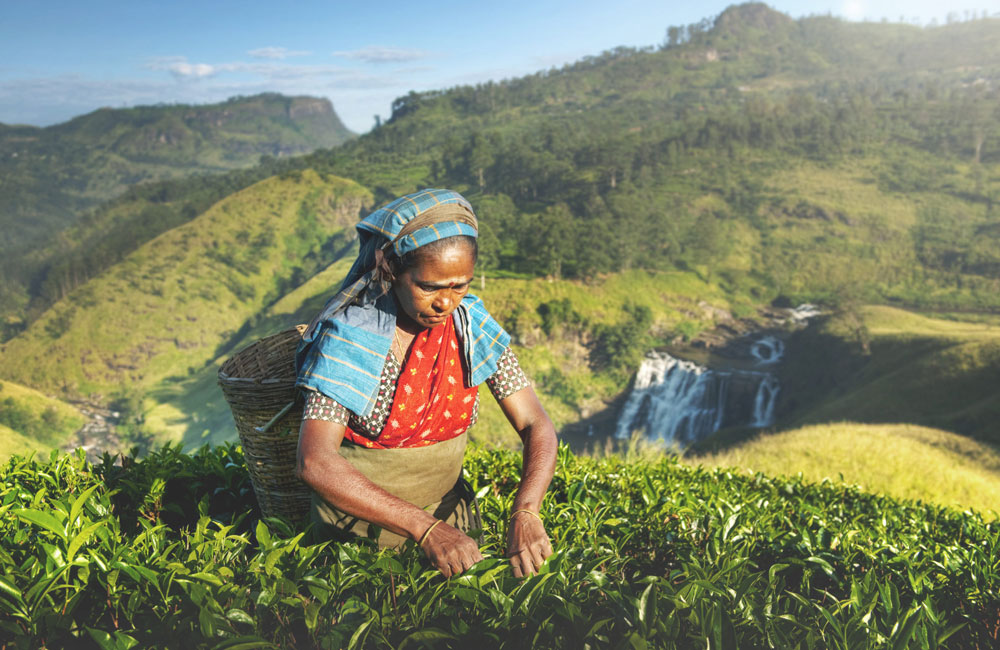
Sri Lanka Tea Industry Bounces Back After Cyclone Ditwah
Sri Lanka’s tea industry has once again proven its resilience, with the Colombo Tea Traders’ Association (CTTA) confirming that Cyclone Ditwah caused only limited disruptions, leaving manufacturing untouched and allowing harvesting, transportation, and Colombo Tea Auction activities to steadily return to normal.
In a statement issued yesterday, the CTTA acknowledged that some tea-growing regions in Uva and Central Province experienced minor impacts. However, the Association emphasized that there were no losses in manufacturing capacity, thanks to a highly coordinated industry network prepared to confront natural challenges. “The cyclone presents yet another challenge, but it is by no means insurmountable,” the statement said.
While some roads connecting plantations to Colombo were temporarily affected, the majority have now reopened. Harvesting operations are gradually resuming, aided by temporary access roads constructed to ensure the smooth transport of green leaves and tea produce. Most plantations in the southern regions and along major transport networks were spared, ensuring that the flow of goods continues largely uninterrupted.
Tea auction activities at Colombo continue with minor adjustments. The auction originally scheduled for the first week of December has been rescheduled to the last week of the month, ensuring uninterrupted financial flows to producers, including smallholders. Floods caused by the Kelani River affected a few exporters’ offices and warehouses, with some tea bagging machinery damaged. The industry is actively restoring equipment to maintain timely delivery for overseas clients.
Sri Lanka’s tea production from January to October reached 220.97 million kilograms, an increase of over 3.3 million kilos compared to the same period last year and surpassing the 2023 output. This demonstrates the industry’s ongoing capacity to maintain growth despite environmental and economic challenges.
The CTTA underscored the industry’s history of resilience, citing past crises such as the COVID-19 pandemic, when the tea auction was successfully digitalized, and periods of severe economic strain, during which production, sales, and exports continued uninterrupted.
Comprising key stakeholders, including the Planters’ Association of Ceylon, Sri Lanka Tea Factory Owners’ Association, Colombo Brokers Association, Tea Exporters’ Association, and Tea Smallholding Development Authorities, the CTTA serves as the apex private sector body of the tea industry. Its collaborative approach ensures that challenges—from natural disasters to logistical disruptions are addressed effectively.
The CTTA concluded by reaffirming its commitment to supplying ‘Ceylon Tea’ globally, highlighting the unity and dedication of all stakeholders in overcoming obstacles and maintaining the industry’s international reputation.

Thunderstorm Warning Issued for Multiple Districts, Met Department Alerts
The Meteorological Department has issued a weather alert warning of a high probability of thunderstorms with severe lightning in several areas of the Kalutara, Ratnapura, Galle, and Matara districts.
The advisory notes that these thunderstorms may be accompanied by temporary strong winds, heightening the risk of weather-related incidents.
Authorities have urged the public to take appropriate safety measures to reduce the dangers posed by lightning, especially during periods of heavy rainfall and thunder.
Residents in the affected regions are advised to stay indoors during lightning activity, avoid using wired electrical devices, and keep away from open fields and tall structures for their safety.
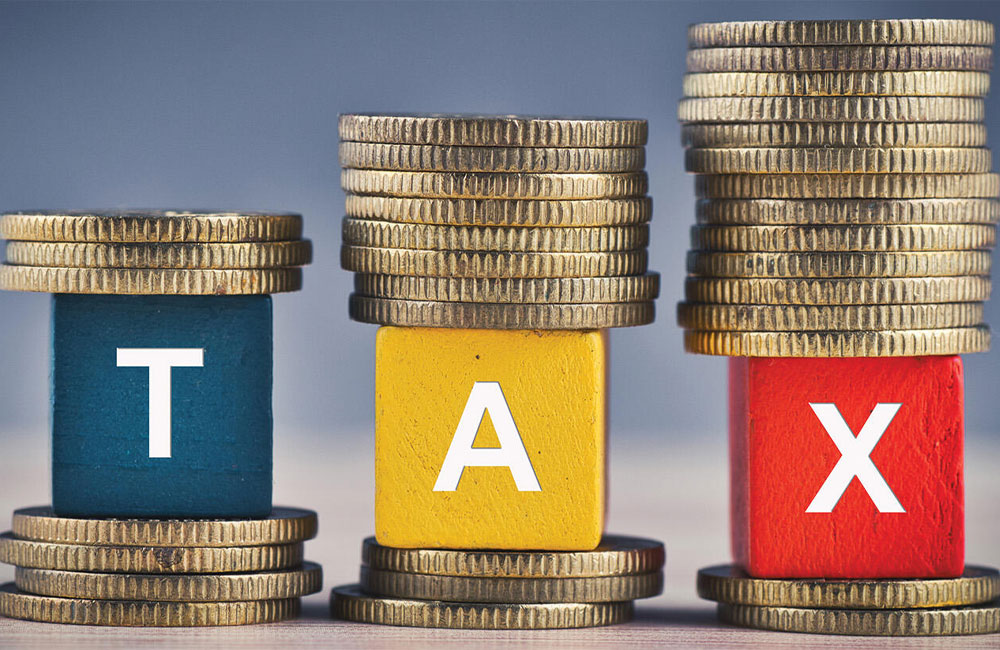
Sri Lanka Loses Billions in Tax Exemptions, Threatening Fiscal Stability
Sri Lanka continues to face significant revenue losses due to widespread tax exemptions, raising concerns about fiscal stability and the broader economic recovery. According to the latest Tax Expenditure Statement published by the Ministry of Finance in November 2025, exemptions and concessions reached Rs. 285.7 billion in the first half of 2025 alone equivalent to 57% of the total tax expenditure recorded since April 2023.
The report highlights that total exemptions since April 2023 have soared to Rs. 787.1 billion, encompassing Corporate Income Tax, Personal Income Tax, Value Added Tax (VAT), Excise Duty, Customs Import Duty, the Social Security Contribution Levy, and the Luxury Tax on Motor Vehicles. While measures to broaden the tax base and increase revenue collection have been introduced under the economic recovery program, these large-scale concessions continue to limit their impact.
The 2023/24 financial period primarily reflects income tax exemptions: Rs. 12.2 billion in Personal Income Tax and Rs. 119.3 billion in Corporate Income Tax, totaling Rs. 131.5 billion. VAT, excise, customs, and other consumption-based exemptions are reported in 2024, totaling Rs. 369.9 billion. Notably, VAT exemptions alone amounted to Rs. 333.3 billion in 2024, with Rs. 207.4 billion recorded in the first half of 2025, primarily covering essential goods, utilities, medicines, food supply chains, and priority sectors outside the Board of Investment framework.
Other significant exemptions include Rs. 61.7 billion in the Social Security Contribution Levy, largely aimed at shielding consumers from higher prices for electricity, water, fuel, and pharmaceuticals. Customs duty and excise duty exemptions, while smaller, support agricultural inputs, construction projects, and locally assembled vehicles. Luxury motor vehicle tax reliefs granted under Gazettes in 2023–2024 added to the fiscal burden, though recovery actions are underway against non-compliant beneficiaries.
These patterns have direct implications for Sri Lanka’s commitments under the International Monetary Fund program, which relies on improved revenue collection through VAT, income taxes, and enhanced administration of the Social Security levy. Analysts warn that continued high exemption volumes reduce the effectiveness of base-broadening reforms and could constrain public spending on essential services.
The Finance Ministry acknowledges these challenges and aims to integrate tax expenditure analysis into the annual budget cycle. Future efforts will include clear benchmarks, regular evaluation of high-cost exemptions, and sector-specific assessments to align tax reliefs with fiscal consolidation goals. However, the persistence of legacy exemptions from older investment regimes and transitional projects, such as Port City developments, suggests that achieving meaningful revenue gains will require careful policy recalibration.

Producers have assured that egg prices will not increase
The All-Island Egg Producers’ Association has dismissed claims that egg prices will increase during the festive season, calling them completely false.
Chairman Sarath Ratnayake stated that certain groups are spreading these misleading statements in an attempt to justify the importation of eggs.
He added that eggs can still be supplied for less than Rs. 45, reaffirming the Association’s position.
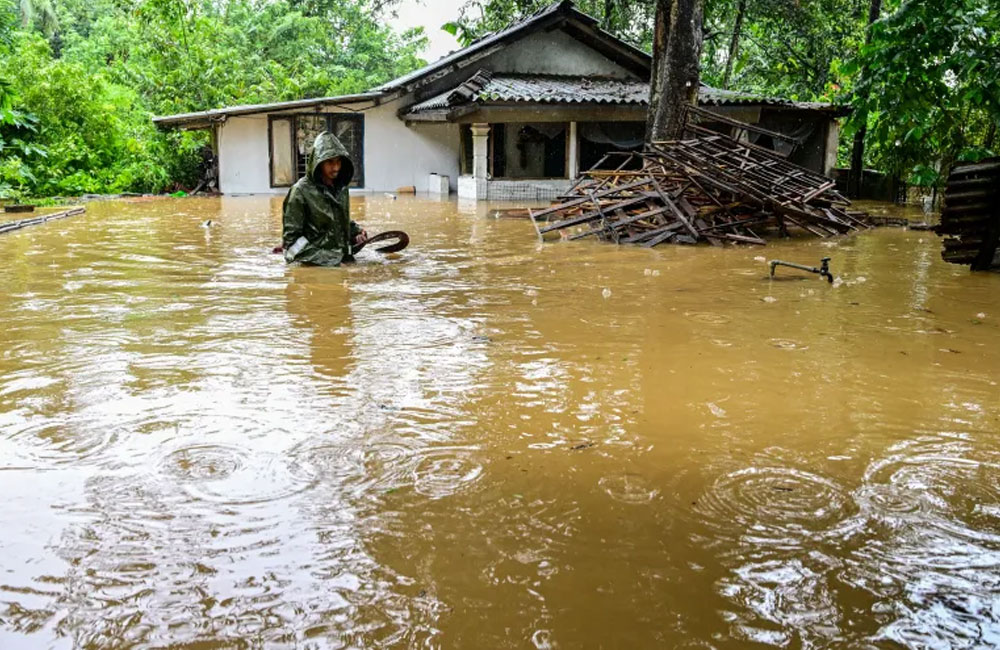
Sri Lanka’s Weather Warnings Fail as Doppler Radar Delays Mount
Sri Lanka’s worsening climate disasters have exposed a critical weakness in the country’s early-warning system: the absence of a functioning Doppler radar, a tool regarded globally as essential for accurate real-time weather forecasting.
A Japan International Cooperation Agency (JICA)–funded radar, promised years ago, is now expected only by 2027, raising questions about government accountability after a series of devastating cyclones and floods.
A Doppler radar detects precipitation levels and wind movements, enabling meteorologists to track storm formation, direction and intensity with high precision.
For an island increasingly battered by extreme weather, the absence of such technology has had deadly consequences. Communities hit by recent cyclonic systems say warnings came too late or were too vague to prepare.
Officials privately admit that the Met Department’s limited forecasting capacity without a Doppler system severely restricts the accuracy of localised alerts.
Sri Lanka was supposed to receive two Doppler radars through a JICA grant agreed in 2017. That number was later cut to one. Even that single unit faced repeated delays due to the pandemic, the economic collapse, procurement bottlenecks and administrative mismanagement.
Construction at the Puttalam meteorological station began only after contracts with Japan Radio and Hazama Ando Corporation were signed in June 2024. Suppliers were finalised four months later, restarting a project that had been dormant for years.
This is not the first time the Met Department mishandled Doppler technology. An earlier attemptundertaken with the World Meteorological Organisation (WMO) collapsed in what auditors described as a costly “disaster.”
The National Audit Office revealed that Rs 400 million allocated in 2006–2007 for a Doppler system was effectively wasted. The radar, purchased on Sri Lanka’s instructions from the US-based Enterprise Electronics Corporation, was installed on a 20-metre tower atop the Gonagala peak in Deniyaya.
After installation, the supplier informed the WMO that the required electronic connectivity was impossible to provide.
Eighteen years later, no one knows where that radar is or why technical feasibility was never verified before purchase.
Amid the current crisis, the Met Department’s Director General was barred from speaking to media following public anger over missed warnings during the latest cyclone. The information freeze has further fuelled suspicion about systemic failures and internal accountability gaps.
Scientists warn that without Doppler radar coverage, Sri Lanka will continue to rely on outdated systems incapable of capturing rapid storm intensification now common due to climate change.
As people struggle to rebuild homes destroyed by floods, the question remains unanswered: how many more disasters will strike before Sri Lanka finally installs the technology it has been promised for nearly two decades?

Jetstar’s Colombo Launch Marks Major Shift in Australia–Sri Lanka Travel
Jetstar is set to transform air connectivity between Australia and Sri Lanka with the launch of its first-ever direct low-cost service from Melbourne to Colombo, beginning 25 August 2026.
The move positions the carrier as the first Australian airline to operate direct flights on this route, offering more than 100,000 affordable seats annually and opening a new chapter in bilateral tourism and travel.
Jetstar CEO Stephanie Tully described the new route as a landmark moment for the airline’s international expansion. “Colombo is an incredible destination, and from August next year, we’re excited to make it easier and more affordable for Australians to explore the beauty of Sri Lanka,” she said.
Tully added that the route forms part of a broader period of growth, which includes new destinations, upgraded aircraft and an expanded flight network designed to “give travellers more choice and the ability to take off for less.”
Melbourne Airport CEO Lorie Argus welcomed the announcement as the airport and Jetstar celebrate 10 years of operations at Terminal 4. Argus noted that Sri Lanka has become one of the region’s fastest-growing destinations.
“More Jetstar flights mean more low fares and more opportunities for Victorians to explore the worldor reconnect with family across South Asia,” she said. Melbourne remains Jetstar’s largest hub.
The service will run three times a week using Jetstar’s Boeing 787 Dreamliner fleet, which is undergoing a significant upgrade early next year. The refurbishment includes more than doubling business-class capacity, installing in-flight Wi-Fi, and modernising cabin interiors to improve long-haul comfort.
A new lie-flat crew rest facility allowing flights up to 16 hours—will also extend Jetstar’s ability to operate longer international routes in future. The first upgraded aircraft is expected to arrive in Melbourne by March 2026.
To mark the launch, Jetstar opened ticket sales on Monday with a 24-hour Route Launch Sale, offering one-way fares as low as $315.
The introduction of the Colombo route coincides with one of Jetstar’s most active expansion phases in its 22-year history. Over the past two years alone, the carrier has announced 26 new routes and taken delivery of 13 new aircraft, nine of the routes being international in 2025.
Jetstar is also preparing for its biggest travel season on record, expecting nearly six million passengers across its international and domestic networks in December and January—including a record 1.7 million through Melbourne.
Under the published schedule, Melbourne flights will depart at 12:00 on Tuesdays, Thursdays and Saturdays, reaching Colombo at 17:50. Return flights will leave Colombo at 19:50, arriving in Melbourne at 10:00 the next day.
Page 28 of 653